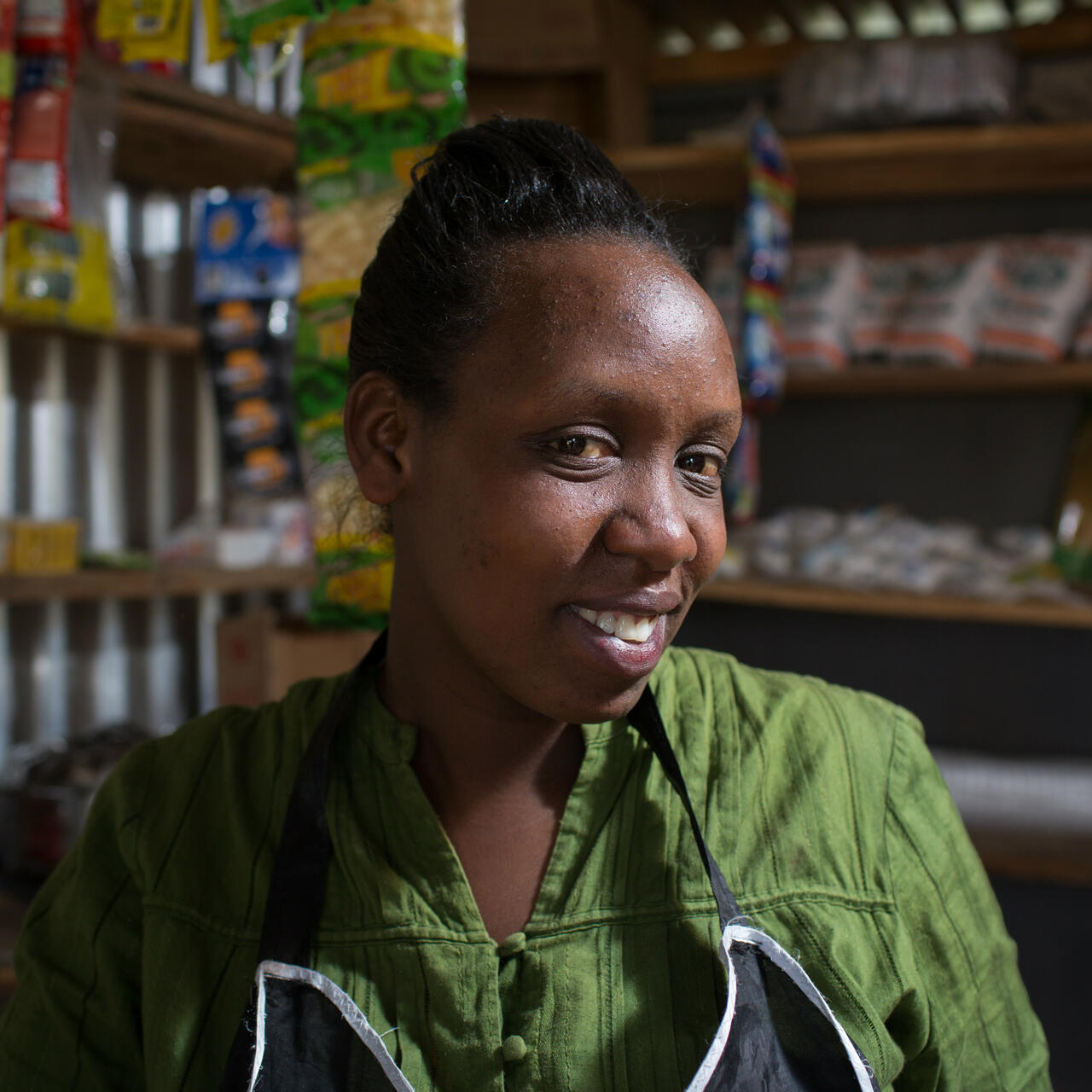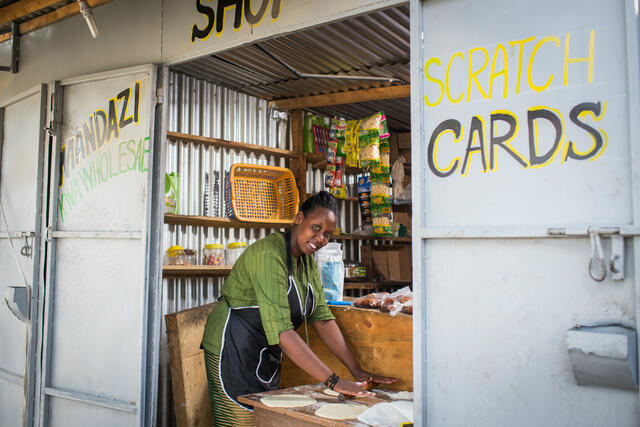
Imagine: You are 14 years old living with your parents and four siblings in a small village in North Kivu, the Democratic Republic of Congo. You wake up for school but feel ill, so you stay home to rest. You say goodbye to your parents as they leave to work on the farm, unaware that you will never see them again.
Suddenly you are surrounded by gunfire, and everyone outside is running—armed rebels have arrived. You grab whatever you can and start running as well, away from the burning houses into the jungle, your neighbors scattering around you.
This story belongs to Chantal Rutonda Nyamuco, one of more than 500,000 displaced Congolese who have fled the violence that has swept over their country. Chantal, now 29 years old, still does not know what became of her family. When she had managed to outrun the bullets and brutality of the invasion 15 years ago, she found a friendly family to travel with. They walked for at least one week, living off scraps of food and drinking dirty water from the rivers. By the time they arrived in Burundi, Chantal was sick with malaria.
In Burundi, a stranger took her in until she was well enough to work in his restaurant, where she learned to cook mandazi, a type of fried bread. With nowhere else to go and no family, Chantal worked at the job for nine years—despite that she was mistreated and profoundly unhappy. It was not until a coworker took a chance and hid Chantal in the trunk of his car, driving her to Uganda. He gave her some bananas and sweets so she could pretend she was selling, allowing her to sneak across a second border into Kenya.

Chantal soon learned about the Congolese community living outside Nairobi. She was able to move in with another refugee and they pooled their modest resources, selling tomatoes in the market, washing clothes and performing housework for those more fortunate. She was living day to day, sometimes earning too little to buy a meal. “The stomach does not know how to say thank you,” she says. “He just needs to eat again tomorrow.”
One day, another refugee introduced Chantal to the International Rescue Committee, which operated a livelihoods program in Nairobi. Chantal knew how to cook and believed she could manage her own business, so she enrolled in IRC business training classes. She subsequently received a three-month internship and a small grant to open her own shop.
“I learned many things in the program,” Chantal says. “Most importantly, I learned how to save. Before, I would make 300 shillings and spend it all. Now, I’m able to save whatever little I get, even if it’s just 50 shillings, to be able to live tomorrow.”
Last February, Chantal opened a small roadside stand selling mandazi, chapati, tea and coffee to the locals and the children who attend school across the street. “It has lifted me,” she says. “I can afford to buy beef at least twice a week; before, that was not possible. I am very happy I joined the IRC program. It has been great for me.”
Chantal hopes to find a better location and open a bigger place where people can sit, eat and relax, but for now, she is grateful for the opportunity she has. “I am very happy there is somebody who thinks about me. It gives me the strength to work even harder.”
The IKEA Foundation is supporting the IRC with a €5 million grant to help refugees and Kenyans living in poverty create better opportunities for their families and their communities.